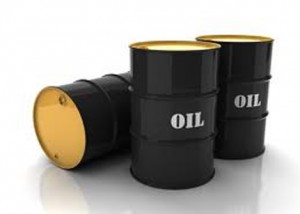Ghana generated $247m from oil sector in 2016 – GOGIG
 The future of Ghana’s oil and gas sector as a catalyst to push socio-economic development looks brighter, though the nation lacks pricing policy for her crude.
The future of Ghana’s oil and gas sector as a catalyst to push socio-economic development looks brighter, though the nation lacks pricing policy for her crude.
A pricing policy for crude, according to the Ghana Oil and Gas Inclusive Growth (GOGIG), an UKaid project set up to support the nation to manage its oil and gas field effectively, is required to reduce levels of subjectivity in terms of pricing crude oil.
That notwithstanding, the oil sector alone fetched the nation $247.18 million in 2016, being proceeds from Jubilee liftings and other petroleum receipts, according to the 2016 Ghana Extractive Industry Transparency Initiative (GHEITI) report on the oil and gas sector.
In 2016, the Ghana National Petroleum Corporation (GNPC), a body which handles the country’s Exploration and Production activities in the petroleum sector, lifted six parcels of crude oil from the Jubilee and TEN fields and exported a total of 21,580 MMScf of gas to the Ghana National Gas Company (GNGC).
The total crude oil lifted was 5,856,921 barrels – 4,860,462 barrels of Jubilee oil, and 996,459 barrels of TEN oil compared to the 5,730,090 barrels lifted in 2015.
Speaking at stakeholders’ engagement and dissemination workshop on the 2016 GHEITI reports on oil and gas, and mining sector held at Abesim, near Sunyani, Mr Kwaku Boa-Amponsem, Managing Partner of Messrs Boas & Associates, said Jubilee and TEN petroleum production fields were in operation in 2016.
The Ministry of Finance and Economic Planning with support from the GOGIG organised the workshop, attended by Municipal and District Chief Executives, financial officers and Coordinating Directors drawn from the Municipal and District Assemblies in the region.
Mr Boa-Amposem explained that although there were petroleum exports or sales from both fields, the report captured only petroleum sales from the Jubilee field in its reconciliation because sales proceeds from exports of TEN field was not received in 2016.
Receipts and proceeds from Jubilee and TEN fields as well as other sources of petroleum revenue are regulated by the Petroleum Revenue Management Act (PRMA), which provides a framework for the collection, allocation and management of petroleum funds.
The PRMA establishes the Petroleum Holding Fund (PHF) as a designated public fund to receive all petroleum receipts as defined by the law.
According to the report, the state is entitled to a royalty on gross production of five per cent for Jubilee and TEN, adding that, the petroleum agreement grants Ghana Carried and Participating Interests of approximately 13.64 per cent and 15 per cent of Jubilee and TEN fields respectively.
Corporate Income Tax on upstream and midstream petroleum companies for 2016 was 35 per cent, it added.
Dr Steve Manteaw, a policy analyst and Co-Chair of the GHEITI observed that the petroleum sector held huge potentials to enhance the nation’s socio-economic development, but noted that lack of transparency in the sector had fuelled corruption.
To reduce corruption in the sector, Mrs Hannah Owusu-Koranteng, the Associate Director of WACAM, a civil society organisation, emphasised the need to engage citizens actively, and make them understand the processes in policy formulation and contracts.
Mr Evans Opoku Bobie, the Brong-Ahafo Regional Minister, in a speech read on his behalf, called for prudent utilization of minerals royalties paid to Municipal and District Assemblies to benefit the people.
Source: GNA
